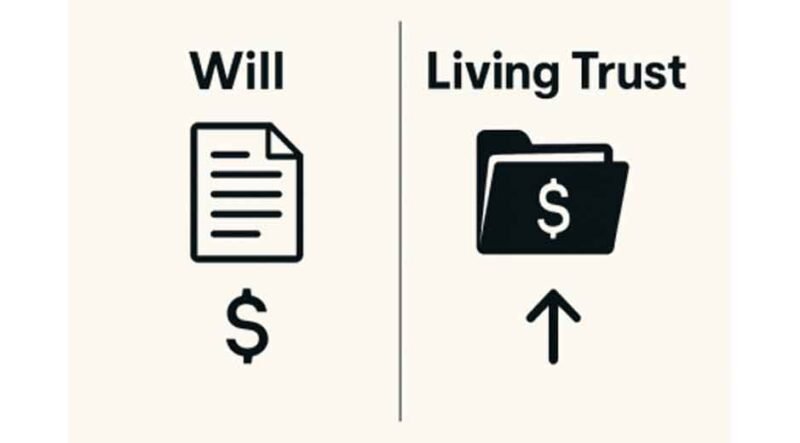Key Takeaways
- Living trusts offer several advantages for estate planning, including privacy, efficiency, and probate avoidance.
- The cost to establish a living trust is highly variable and depends on several personal and legal factors.
- Understanding the distinctions between wills and living trusts is critical for making informed estate planning decisions.
- Evaluating your family’s asset complexity, needs, and long-term goals is vital before committing to any one solution.
- Authoritative external resources are available to deepen your understanding of revocable living trusts and how they compare to wills.
Why Families Consider Living Trusts
For many families, ensuring that loved ones are cared for and that assets are transferred smoothly is a top priority. Living trusts are a popular option because they allow assets to be passed on more privately and efficiently than a traditional will, avoiding the public and often lengthy probate process. National surveys show that about 20% of Americans with estate plans choose trusts for these advantages. Understanding the potential expenses involved is essential in deciding if this approach fits your goals, and resources like https://www.cunninghamlegal.com/how-much-should-a-living-trust-cost/ can help clarify what to expect.
The privacy protections offered by a living trust can be tremendously valuable to families with sensitive personal or financial matters. Additionally, living trusts can save significant time and expense for heirs who might otherwise face protracted probate proceedings. For those seeking a streamlined approach to estate transfer, a living trust is an attractive option—particularly when guided by comprehensive resources from reputable legal sites.
Initial Costs to Set Up a Living Trust
A primary concern for families considering a living trust is the cost. Living trusts can usually be established online for a few hundred dollars. Still, attorney-drafted trusts suitable for those with complex estates or blended families can cost several thousand dollars. Factors such as joint versus individual trusts, holding property in multiple states, or including unique provisions for children or charities will all impact the final price.
While an initial investment can feel significant, the long-term benefits—such as fewer probate expenses and increased administrative efficiency—can offset up-front costs. It is wise to compare quotes from reputable estate planning attorneys and educate yourself using trusted online calculators and legal resources to get a clear sense of potential expenses for your specific situation.
Wills vs. Living Trusts: Cost Comparison
Wills are typically less expensive to create, often costing only a few hundred dollars in legal fees if you choose to work with an attorney. However, while less costly up front, wills require probate court involvement upon death, which can cost anywhere from 2% to 7% of the estate’s value—potentially costing heirs thousands and causing months or years of delay. Conversely, living trusts can be more costly to establish but often provide greater savings in probate-related court fees and administrative expenses over time. For a detailed comparison of costs and benefits, consider reading this guide from NerdWallet.
Factors Influencing Living Trust Costs
- Complexity of Assets: Estates with diverse or high-value assets require greater legal expertise, driving costs higher.
- Legal Assistance: Hiring an estate planning attorney ensures rigorous legal compliance but increases fees. Templates and DIY kits can be less expensive, but risk costly mistakes.
- Location: Legal fees vary considerably by state due to differences in local laws and regulations.
- Customization: Including special clauses for children with special needs, out-of-state real estate, charitable donations, or pet trusts increases drafting complexity and expense.
Ongoing Administration and Maintenance Expenses
Creating a living trust is not always a one-time expense. After initial drafting, ongoing costs may include transferring assets into the trust, annual bookkeeping or accountancy fees, and trustee management if you work with a professional. Adjustments to the trust may be needed over time due to changing laws, family relationships, or the acquisition of new assets.
These ongoing administrative needs highlight the importance of continued oversight and periodic review, preventing legal problems and ensuring the trust reflects your latest wishes.
Potential Savings and Tax Benefits
A significant advantage to using a living trust is avoiding probate, which can result in substantial savings. By bypassing court proceedings, families can save time and money, avoiding filing fees and court costs that might otherwise reduce the estate’s value. While standard revocable living trusts do not generally provide income or estate tax benefits directly, specific advanced trust structures—combined with other estate planning strategies—may help reduce taxes for some individuals. Reviewing Investopedia’s introduction to revocable living trusts is helpful for a broad overview.
Common Misconceptions About Living Trust Costs
A common myth is that living trusts are only for the wealthy. In truth, even those with modest estates can benefit if they value privacy or have complex family circumstances. Moreover, some mistakenly assume trusts are a “set it and forget it” solution, but unfunded or out-of-date trusts can cause serious problems. Families of all sizes and means can often use living trusts to avoid probate, preserve privacy, and ensure smoother estate transfers.
Mistakes to Avoid When Creating a Living Trust
- Forgetting to transfer (fund) assets into the trust correctly renders it ineffective.
- Failing to update the trust in light of family changes, such as births, deaths, divorces, or changes in the law.
- Use do-it-yourself templates that fail to comply with your state’s legal requirements.
Working closely with experienced legal professionals and scheduling regular trust reviews helps avoid costly errors and ensures your trust remains valid as life and laws evolve.
Determining If a Living Trust Is Right for You
The choice between a living trust and a will should be grounded in clearly understanding your values, your family’s needs, and the nature of your assets. Privacy, complexity of estate, and avoidance of lengthy court intervention are just a few considerations that can make a living trust especially beneficial. Ultimately, consulting an estate planning attorney will provide the personalized guidance necessary to determine the most effective estate planning solution for your unique circumstances.
Weighing the costs and benefits of a living trust is an essential step in creating an effective estate plan. While there are upfront expenses, the potential savings in time, privacy, and probate fees can make it a worthwhile investment for many families. Beyond financial considerations, a living trust offers peace of mind by ensuring assets are managed and distributed according to your wishes. By understanding its advantages and limitations, families can make informed decisions that protect loved ones and create a smoother transition for future generations.








